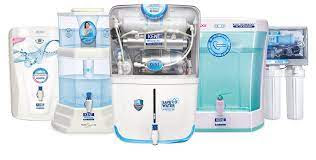Tips for Choosing the Best Water Filter
If you've ever considered purchasing a water filter for your home, you know that the process can be extremely complicated. There is a massive amount of information to sift through, and there are difficult questions to answer in order to find the right fit.
While attempting to determine the best filter, I spoke with experts and spent hours searching the internet for information, attempting to understand the existing technology and gaining an opinion on which filter was best for us. If you're wondering how to choose the best water filter, here are a few pointers to get you started. In this water purifier guide, I will share the important questions that should be answered before you begin your search, as well as provide some insight into what many experts believe to be the best water purification technology available.
Determine why you want to filter your home's tap water. The following are the reasons why people buy filters.
Water that is safe to drink
The primary reason for purchasing a home water filter is to ensure that your drinking water is both safe and delicious. The removal of calcium carbonate from tap water can significantly improve taste, especially when the water is reused in a coffee machine, water cooker, or kettle.
Showering and bathing in safety
Other reasons include avoiding dry skin and frizzy hair caused by chlorinated water, as well as inhaling and absorbing chlorine and related chemicals via your skin while showering or bathing. Find out more about the advantages of shower water filters.
Soften hard water and protect your home from hard water damage.
You may want to bring a water filter into the house to extend the life of your clothing, to prevent scaling, spotting, and filming on dishes or surfaces, and to protect your pipes and shower heads. To ensure that your soap lathers properly in your water.
Questions to Ask When Purchasing a Water Filter
What Kinds of Contaminants Must Be Filtered? Different types of water filters are capable of filtering out different contaminants, so it is critical to understand your city's contaminants before deciding on a filter. Even if you have excellent water that meets all EPA and state standards on a regular basis, there is always room to improve the quality of the water we drink. Let us look at some of the most common types:
Water Filters with UV Light
Many water filters, to varying degrees, deal with organic contaminants such as bacteria, fungus, or viruses. The ultraviolet water filter, on the other hand, is by far the best water filter for these types of contaminants. A UV water treatment system can kill up to 99.99 percent of waterborne microorganisms and can be used in conjunction with a variety of whole-house or point-of-use water filters. UV systems require electricity to function. This means that if electricity is not available, it may not be suitable for some applications such as emergency or survival needs, so you may want to consider a battery backup.
Water Filters for the Entire House
A plumber will typically instal these at the point where the water supply enters your home. They usually come with three stages of water filters, the first of which is a sediment filter. The second stage can be a carbon blocking water filter or another technology, depending on what you want to filter out. For example, a kinetic degradation filter that removes contaminants from water by using high-quality copper and zinc.
Water Filter with Reverse Osmosis
This is the reverse osmosis membrane, which has extremely small pores through which water is forced under pressure. The pores prevent larger contaminants from passing through while allowing water to pass through. These were originally intended to purify salt water for drinking. (I'm assuming it'd work well for that.) The purified water is stored in a tank by reverse osmosis water filters. This tank is typically installed immediately after the fourth stage membrane. Some systems now have a 5th, 6th, or even 7th stage filter inline after the tank to remove more and more contaminants or, in our case, to replenish some of the good minerals lost during the filtration process.
In conclusion
For our family, a water filter was an excellent choice. We don't have to worry about bottled water being available at the store during the pandemic, and the hassle of lugging bottled water home is eliminated! We also get high-quality drinking water and peace of mind.




Comments
Post a Comment